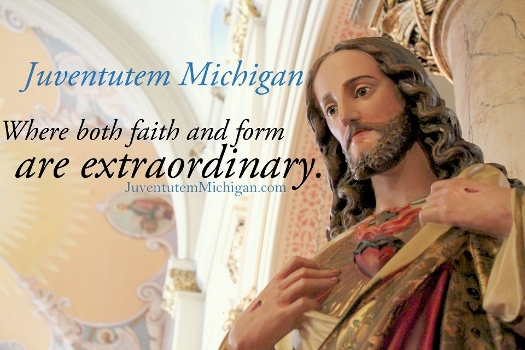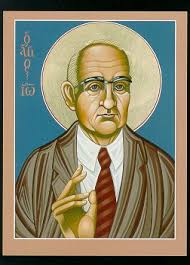Dr. Monica M. Miller
Another
interview with Pope Francis appeared in the Oct. 1, 2013 online
edition of the Italian journal Repubblica.
The
link is below. Again, the Holy Father, similar to the America
magazine interview, has
much good to say.
But those statements are mixed in with statements that are ambiguous
and thus subject to exploitation and misuse by those who do not
accept the teaching of Christ.
Here
are the troubling quotes from the latest media saga involving Pope
Francis:
1) “The
most serious of the evils that afflict the world these days are youth
unemployment and the loneliness of the old.”...
Youth unemployment is: "the
most urgent problem that the Church is facing."
Why Francis made such a statement is perplexing. I can think of at
least 20 other more dire problems than these two—and yes, legalized
abortion is certainly near—if not at the top of the list.
2)
"Heads
of the Church have often been narcissists"--etc.
Who does Francis actually have in mind here? Recent popes? Or
is he drudging up the Borgias? It’s difficult to know who or
what he is referring to in this statement.
3)
"The
Church should go back to being a community of God's people."
When did she cease being this exactly? Just because the
Vatican has its problems doesn't mean Christ's Church has stopped
being "the community of God's people.”
4)
"Proselytism
is solemn nonsense." Here
there is no distinction between evangelization and improper
proselytizing that does not respect the rights of persons-- and the
Church's mission is not ultimately a matter of let’s "listen
to each other and improve our knowledge of the world around us."
5)
We have to
encourage people to move towards what they
think is Good" and
"Everyone has his own
idea
of good and evil and must choose to follow the good and fight the
evil as
he conceives them."
Francis's articulation of conscience exhibits a lack of moral
theological precision. The statements sound like moral subjectivism
and even a kind of relativism. It is true that, in terms of
“autonomy, the Church affirms that even an erroneous conscience
must be followed. However, it would have helped enormously if the
pope had explained that human beings have a duty to form their
conscience according to objective truths and goods so that they can
choose what is truly consistent with human life and dignity. They are
not just to follow their own personal lights--maybe though acting in
"good faith.” But even in “good faith” many people
mistake evil for good.
6)
"Jesuits
are still the leavening...perhaps the most effective-- of
Catholicism, culture, teaching, missionary work, loyalty to the
Pope."
Someone needs to inform Francis that not too many Jesuits these days
are "loyal to the Pope" and if the Society of Jesus--
known primarily as a heterodox force in the post Vatican II Church,
is the most important "leavening" agent-- the Church
is in big trouble.
7)
"We need
to include the excluded."
Yes-- true! But what does this mean exactly and who are they?
Who exactly are being “excluded”? Perhaps he means by
"include", a la Vatican II, dialogue with
non-believers as he went on to say one sentence later.
8)
When asked
if: "'Thou shalt love thy neighbor as thyself' has
happened?" Francis
said:
"Unfortunately, no." What
is the pope saying-- exactly-- that the Church has never practiced
this-- that the Church has failed in this practice since her
beginning? Who does he have in mind here? Maybe he means
generally speaking--the world does not practice this? This may
be true but again ambiguity is a problem.
9)
When the
reporter claimed that the “institution [of the Church] dominates
the poor.”-- Francis
said "In
fact that is the way it is."
It sounds like the pope agrees that Christ's Church oppresses the
poor? Francis should have pointed out that the Church everywhere
and in all ages has been and is the chief defender of the poor--- and
then perhaps point out that there have been instances of corruption,
etc?
10)
Francis indicated that with his papacy:
"This is the beginning of a Church with an organization that is
not just top-down but also horizontal."
The Church has never neglected the horizontal aspect of her being.
But what exactly does Francis mean here-- a democratization of
Catholicism? Many will read it this way-- and maybe (because of
ambiguity) that's what he meant to say.
11)
"I
believe in God, not in a Catholic God."
In a sense this is a completely proper statement. However in another
real sense a Catholic can say that they do believe in a "Catholic
God"--namely the God who has shown himself to his people, the
God taught by the Church and served by the Church and the very God
who directly founded her existence though the shedding of His blood
for her. This may be called the "Catholic" God. After all,
that non-Catholic God founded he Catholic Church.
12)
"Our
species will end, but the light of God will not end and at that
point it will invade all souls and it will be in everyone."
This may be
the most theologically off statement in the whole interview.
First of all, "our species" namely the "human race"
will not end. Yes, the world as we know it will end, that’s
Christian teaching. But God created people and they live forever.
The human "species" doesn't end. Furthermore we are not
just a bunch of disembodied souls that will be “invaded” by the
light of God that “will not end” and "it (God's light) will
all be in everyone."
God
does not invade
all souls. He doesn't invade anyone. God must be accepted freely and
there's no way that Francis can say God's light will just be in
"everyone at the end." I mean, we hope that's the
case-- pray for this to be the case--work for this to be the case!
But he makes it sound like this will happen to everyone no
matter what, apparently even in souls that don't want him.
This
view of the spiritual life is unhinged from the Catholic spiritual/
theological heritage. There isn't even a Christian vocabulary
here upon which to stand. The statement is just flying out-there in
some new age cosmos. If God will “invade” all souls in the
end, the Church can stop evangelizing. Apparently there is no need.
In the meantime we can all be obsessed with that youth unemployment
problem.
Ok--
here's the good stuff-- Francis is obviously a great and holy man and
before this atheist reporter he affirmed the existence of God as
Father, the existence of the soul, man’s need for grace and that
the Church is feminine. Let us humbly pray for Pope Francis.
Monica
Migliorino Miller, Ph. D.-Director of Citizens for a Pro-Life Society
Associate
Professor of Religious Studies, Madonna University, Michigan. The foregoing article is posted by permission of the author.






 Okay, I think someone may have gone just a wee bit too far with this "proto-canonizing" von Balthasar!
Okay, I think someone may have gone just a wee bit too far with this "proto-canonizing" von Balthasar!
